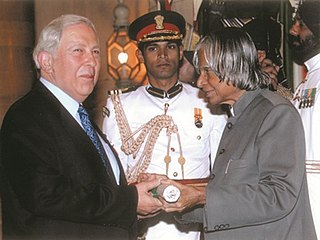A Quote by Scott Gottlieb
One of the biggest factors fueling the angst over drug prices in the U.S. is that some older medicines that should be sold cheaply as generics are still priced very high, often owing to a dwindling number of generic competitors and the rising cost of producing these drugs.
Related Quotes
Repealing drug laws would remove the risks involved with producing and distributing drugs, bringing 'street prices' crashing down (it's estimated that a 'spoon' of heroin would cost about a quarter in the free market), thereby eradicating any incentive that criminals might have to compete with legitimate businesses, and greatly reducing if not eliminating altogether any economic reason to 'push' drugs on children.
The same drugs are way cheaper in Germany than in America because, obviously, if all sickness funds negotiate with the drug companies for a single price, then the market power of the sickness funds is fully used. So therefore you would expect the prices to be lower for the drugs in Germany, and this is exactly what you see, at least for non-generic drugs.
With the Health Impact Fund, the innovation is paid for separately, through publicly funded health impact rewards, and the product is sold at the cost of production to all. Here, the cruel injustice of preventing the poor from buying at cost - evidenced by today's suppression of the trade in generic versions of patented medicines - would no longer be needed.
The cost of research, development and testing of a new drug is vastly greater than the cost of each dose produced. How should we pay for new medicines? Innovators should be rewarded according to the impact of their medicine, and people should contribute to these rewards according to their ability to pay.
High prices can be the result of speculation, and maybe plunging prices can be attributed to the end of speculation, but low prices over time aren't caused by speculation. That's oversupply, mainly by Saudi Arabia flooding the market with low-priced oil to discourage rival oil producers, whether it's Russian oil or American fracking.
Under the antitrust laws, a man becomes a criminal from the moment he goes into business, no matter what he does. If he complies with one of these laws, he faces criminal prosecution under several others. For instance, if he charges prices which some bureaucrats judge as too high, he can be prosecuted for monopoly or for a successful 'intent to monopolize'; if he charges prices lower than those of his competitors, he can be prosecuted for 'unfair competition' or 'restraint of trade'; and if he charges the same prices as his competitors, he can be prosecuted for 'collusion' or 'conspiracy.'
It is irrational to charge high prices for socially valuable innovations as this guarantees that they will be underutilized. It is much better to sell them at cost and then to reward the innovator in some other way. This is not always possible, because in some cases the value of an innovation is in the eye of the beholder; it's very difficult to value how much a new Madonna song is worth, for example. But in the case of medicines, green technologies and seeds in agriculture, such an alternative reward mechanism is fairly straightforward.
Now take a look at the way the Drug War is conducted over the past 40 years. It goes back farther, but start from 40 years ago: There's very little spent on prevention and treatment. There's a lot on policing, a ton of stuff on border control and a lot on out-of-country operations. And the effect on the availability of drugs is almost undetectable; drug prices don't change on measures of availability. So there are two possibilities: Either those conducting the Drug War are lunatics, or they have another purpose.
































